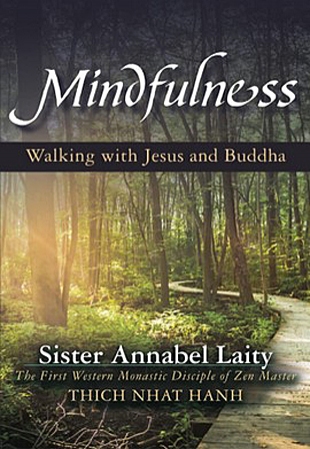“In Buddhist terms, what is called Right Mindfulness and Ethics are one and the same thing. You cannot take ethics out of mindfulness (or, if you do, it becomes wrong mindfulness), and you cannot take mindfulness out of ethics. When we are aware of what we are doing and aware of the consequences of our actions, that is mindfulness, and if we are aware that what we are doing will cause ourselves and others to suffer, we no longer want to do that thing.”
“If we look deeply, we see that good and evil are relative. As long as there is good there will be evil and vice versa. As long as there is good there will evil and vice versa. In the same way, as long as there is left, there be right and vice versa. This nondualistic way of thinking is also present in Christianity. We see it in the Ascetical Discourses of Isaiah of Scetis. There is a saying that ‘if the devils leave me, the angels will too.’ It is not necessary for good and evil to fight each other. Good embraces evil with love so that evil can be transformed, just as the lotus roots embrace the mud in order to produce flowers. Ethics grows out of this nonduality. It is not blindly following rules but takes into consideration the circumstances that are producing the suffering and the ways that can alleviate the suffering. Sex, for example, is not unethical in itself. It is unethical when it causes suffering. Killing almost always causes great suffering to the perpetrator and the victim, but occasionally there may be circumstances where killing will alleviate suffering. So, it is told in one of the traditional legends that one time the Bodhisattva was on a boat with many other passengers. One of the passengers was a mass murderer wanting to kill all the other passengers, so the Bodhisattva had to suffer the consequences of this violent act and spend some time in hell, but he was ready to do that. This is just a story, but it illustrated that in ethics, we are not caught by rules. In ethics, it is understanding and compassion that lead the way.”
